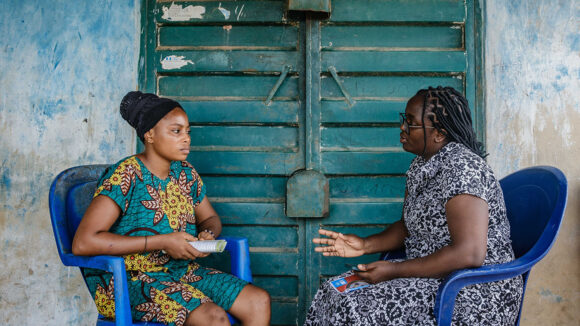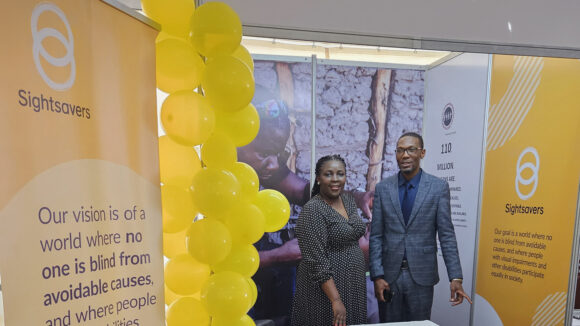NOTE: This article is more than five years old, but may still be relevant. For more recent content, see our news and blogs page.

“Civil society misses opportunities to engage in conversation with governments about how the SDGs are being implemented”
I’ve been in Zambia these last two weeks looking at the eye healthcare system, and I’ve been reminded a number of times about the unintended consequences of some of the decisions made by those looking to improve the health of people in Zambia.
Let me give you two examples.
The first is about a World Bank programme which aims to incentivise health workers in their HIV programme. In this programme the more patients that a nurse sees and the more consistently the nurse’s patients take their anti-retrovirals, the more money the nurse can earn. In the business this is known as ‘payment by results’ and it sounds good, doesn’t it? But consider these unintended consequences:
- Because the government can’t financially support this system in the long run, when this programme ends some of these nurses will see their salaries reduced by 50%
- Because the nurses are paid extra to work on the HIV programme they have less incentive to help people who have malaria, or are pregnant or have an eye condition like trachoma – meaning other essential work is neglected
The second example is about the community health volunteers in Zambia. They give up their time to help people in their community and they are so important in development because they can reach people where they live. But they only have so much time and they are often poor, so when a malaria project and an eye health project want to work with them it is only natural that they work with the project that gives them t-shirts, bicycles and other giveaways.
In other words, projects have to compete with one another to get their time and to help them achieve results.
These are just two examples of unintended consequences…
How do you stop unintended consequences happening?
It’s not easy, you have to consider the consequences of your work very carefully, but one way is to ensure everything you do works with and strengthens the existing health system.
That means helping to train health workers, supporting the health management information system (without which we don’t know what diseases are affecting people and where), helping the financial system to ensure that money finds its way to local health centres and supporting the drug distribution system so people have the medicines where they need it and when they need it.
That is why it is great that a UK Parliamentary Committee is holding an inquiry into the UK government’s support for health system strengthening in countries like Zambia.
This is a great opportunity for us to ask whether UK aid is just producing unsustainable results in the short term or whether the way the UK government works in developing countries recognises the need to watch out for unintended consequences and helps to strengthen the system to achieve a long-term and sustainable impact on the health of people living in countries like Zambia.
We at Sightsavers have been calling for this inquiry for some time now, and are delighted that it is happening. We’ve submitted evidence, and were present at the Select Committee’s oral evidence session earlier this week. We hope that the Committee will recognise the importance of promoting the strong health systems that are needed to reduce some of these unintended consequences. There may be a long way to go though – the complexity and ‘waffle’ associated with health system strengthening may mean the UK government continues to demonstrate a preference for more easily defined results, such as the number of bednets distributed or the number of immunisations given. The report from the Committee is expected in September. I’ll write another blog then to tell you what I think.
Author
 Andrew Griffiths
Andrew Griffiths
Andrew is head of advocacy at Sightsavers.
Want to read more about our work?
Neglected tropical diseases
Why community collaboration is important in our research
Our research on female genital schistosomiasis has highlighted the need to establish a safe and supportive environment for participants when studying sensitive topics.

The key to inclusive education is engaging organisations of people with disabilities
Collaborating with organisations of people with disabilities (OPDs) on our inclusive education projects has earned the Sightsavers-led Inclusive Futures consortium a Zero Project Award in 2024.

Six takeaways from the International Conference for Public Health in Africa
Sightsavers’ Hortance Manjo shares insights from the event in Zambia, which highlighted eye health for the first time.